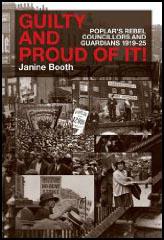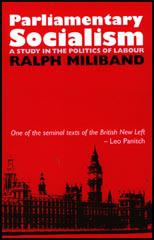Spartacus Review
Volume 35: 26th July, 2009
Labour History

Title: Guilty and Proud of It!
Author: Janine Booth
Editor:
Publisher: Merlin Press
Price: £12.95
Bookshop: Amazon
Spartacus Website: George Lansbury
Category:
In the aftermath of the First World War, thirty Labour councillors went to prison rather than accepting inequitable taxes. With unemployment rising in 1921 in Bow, Limehouse, Millwall and Old Ford, Poplar Borough Council could not help provide relief drawing only on the limited wealth of one poor London borough. Poplar councillors, including future labour leader George Lansbury, demanded that rates from richer areas should help. Rich Kensington had a hugely greater rateable value and fewer jobless people; it could afford to pay more. So Poplar refused to pay over rates to the London County Council, and thus began the Poplar Revolt. Drawing on archive research and on newspaper reports, this book tells the story of the support mobilised by Poplar Council. The story begins when newly-enfranchised working-class voters elected Labour to run the Council in 1919. For the next two years, it improved life for Poplar residents, coming into ever-increasing conflict with the central authorities and the local government funding system. The crisis came in 1921, when Poplar Council refused to levy a portion of its rates. Poplar's fight took its Councillors to prison in September 1921. Released after one month, they continued to battle but the struggle lost momentum. The book ends with a survey of outcomes and considers how this story has meaning today.

Title: Parliamentary Socialism
Author: Ralph Miliband
Editor:
Publisher: Merlin Press
Price: £16.95
Bookshop: Amazon
Spartacus Website: Ralph Miliband
Category:
An analysis of the Labour Party from its early days up to the 1960s with a 1972 postscript reflecting on the Labour government of Harold Wilson [1964-1970]. Of political parties claiming socialism to be their aim, the Labour Party has always been one of the most dogmatic - not about socialism, but about the parliamentary system. Empirical and flexible about all else, its leaders have always made devotion to that system their fixed point of reference and the conditioning factor of their political behaviour. This is not simply to say that the Labour Party has never been a party of revolution: such parties have normally been quite willing to use the opportunities the parliamentary system offered as one means of furthering their aims. It is rather that the leaders of the Labour Party have always rejected any kind of political action (such as industrial action for political purposes) which fell, or which appeared to them to fall, outside the framework and conventions of the parliamentary system. The Labour Party has not only been a parliamentary party; it has been a party deeply imbued by parliamentarism. And in this respect, there is no distinction to be made between Labour's political and its industrial leaders. Both have been equally determined that the Labour Party should not stray from the narrow path of parliamentary politics.
